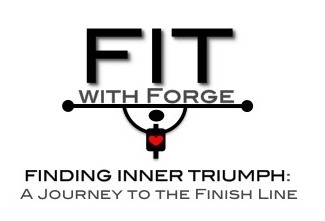So you’ve set a fitness goal. You decided to raise the bar and do something outside of your comfort zone. First things first: GOOD FOR YOU. It doesn’t matter whether you’re going for your first 5k or you’ve signed up for a century bike ride. The bottom line here is that you accepted a challenge.
The start of the March Madness Duathlon in Central Park, 2014
But with any set challenge comes a new assignment. It’s time to build your race calendar, folks. And yes, this is important for everyone. It’s vital that proper training is pumped into your schedule to get you race ready and fit to absolutely kill it out there on the big day. There may not be one big day to lead up to, and that’s great too. But regardless of what your aiming for, there are guidelines to keep you mindful and injury-free.
So take a seat, open your calendar, grab your sharpie (no turning back!) and open your browser. Let's build!
Points to consider:
RECOVERY
Regardless of distances, many races can be hard on the joints and leave the body sore or stressed for days, sometimes weeks afterward. It’s important that races are scheduled with the intention of resting for the next several days to aid in a solid recovery. If you’re someone who has a hard time letting go of daily fitness, swap in some more restful and non-impactful activities like restorative yoga or swimming.
TIMING
If there is a big goal in mind, do what I do, work backwards. A week or two out from a big race is tapering time, so no race should be plugged in there. If you’re training for a marathon, for instance, even a 4-mile race can leave you with a tear or throbbing pain. It’s best to keep the home stretch clear of possible roadblocks. Depending on your race history and experience, a half-marathon should generally be scheduled half-way through your training plan. For triathletes, early in the season is a good time to work in short distance races and some duathlons to get the mind just as set as the body for what’s to come later down the line. For a 70.3 competitor, a couple of olympic distance races could be smart at least four weeks from the big day. For a Ironman 140.6 competitor, like myself, I will have sprint & olympic distance races in spring and early summer, followed by a 70.3 eight weeks out from the big day. This will give me proper time to recover, refuel, re-asses and up the training for a few more weeks before I begin to taper. Timing is pretty vital.
PERSONAL HISTORY
No two people are exactly alike, or race the same way. It’s truly important that we shift our training and focus based on what we know about our bodies, their relationship to injuries and their general need for recovery. I personally can suffer from bad knee pain in a fast race, so it’s best that sometimes I avoid the smaller races to eliminate that not-so-fun experience for myself. Some people race hard and then see extremely positive results in their overall performance. Just be smart and use your best judgement. History tends to repeat itself; learn from your experiences.
FINANCES
Let’s be honest, this can be an expensive hobby. If you’ve set a budget for yourself, stick with local races that don’t require much travel or lodging. Look into the local groups that put together smaller races throughout the year, and join running clubs to experience that extra push once in a while. Research organizations with training teams so you can raise funds for a greater cause and avoid the steep race fees. There’s also something to be said for planning ahead! Most races start at much lower prices when they first go on sale, and offer incredible discounts for a short period of time. Try and catch that window of opportunity before the high costs creep up.
The night I signed up for my 1st triathlon, '13
We could go on and on about this. Well, I could. But see this calendar as an exciting road ahead! You’ve got all these great benchmarks to set up that can keep you honest leading up to your big race, or just give you an incredible line-up of activities to look forward to. No matter how you see it, you’ve set goals for yourself and that is always admirable. Anyone who takes that extra step is likely to see the progress in their results over time.
Hayley and I pick up our bibs for NYC Tri '14
Want to hear my race calendar so far? It’s not complete, but here’s what I’ve got lined up based on my timeline and experience:
March 29 - Duathlon (2-mile run, 12-mile bike, 2-mile run)
April 19 - Olympic Triathlon (.9-mile swim, 26-mile bike, 6.2-mile run)
May 3 - Half Marathon (13.1-mile run)
June 21 - Ironman 70.3 (1.2-mile swim, 56-mile bike, 13.1-mile run)
July 19 - Olympic Triathlon (.9-mile swim, 26-mile bike, 10k run)
August 16 - Ironman 140.6 (2.4-mile swim, 112-mile bike, 26.2-mile run)
November 1 - Marathon (TBD) (26.2-mile run)
I hope this was helpful, or encouraged you to take the next steps to make a new goal for yourself. If you’ve got any specific questions, or are looking for some extra advice, please send me a message through the “contact” page; I’m more than happy to help.
Happy calendar’ing!!
-BForge
**TODAY'S WORKOUT: REST**



